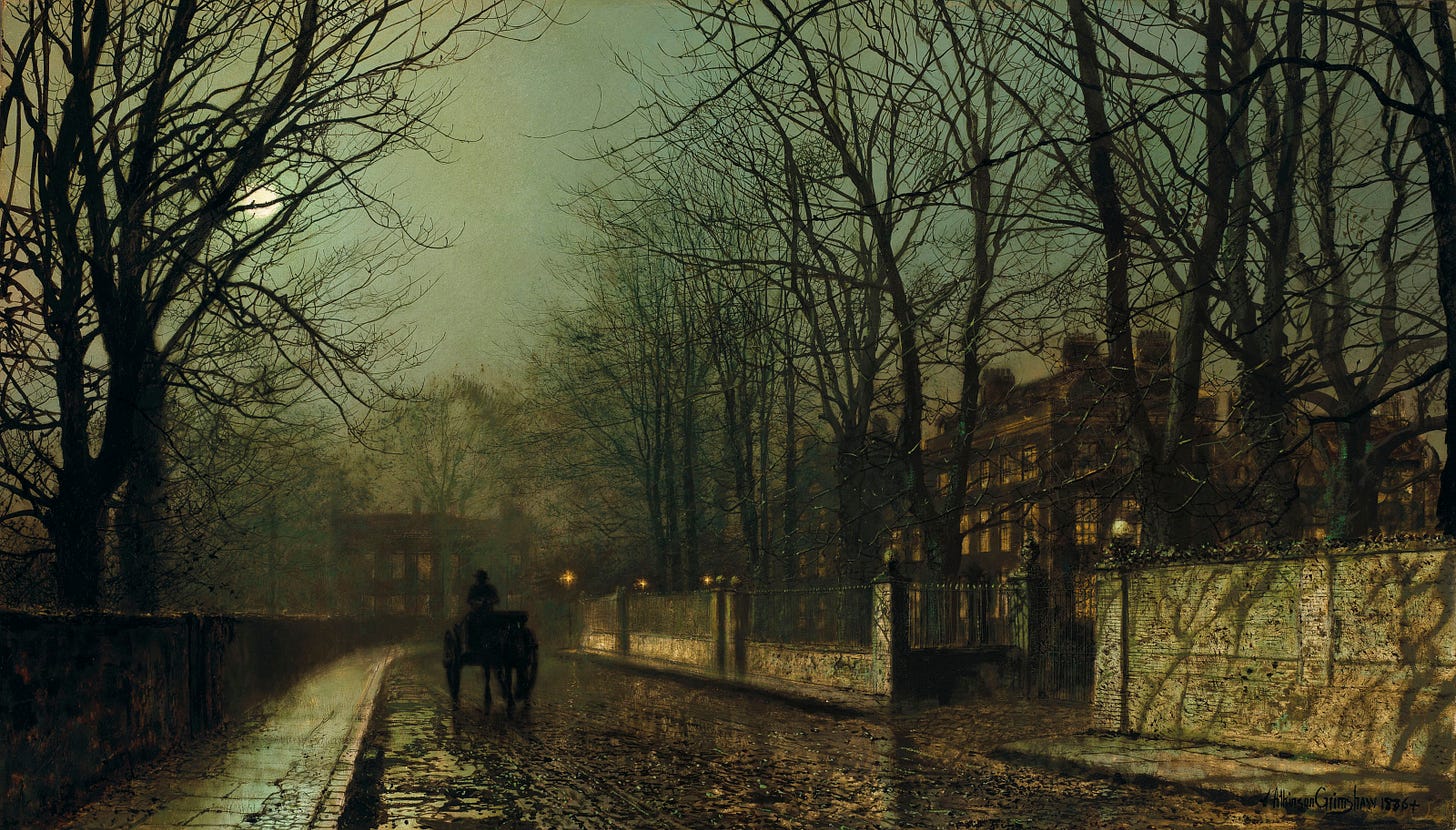
the moon looked into my window
by E.E. Cummings
the moon looked into my window
it touched me with its small hands
and with curling infantile
fingers it understood my eyes cheeks mouth
its hands(slipping)felt of my necktie wandered
against my shirt and into my body the
sharp things fingered tinily my heart life
the little hands withdrew, jerkily, themselves
quietly they began playing with a button
the moon smiled she
let go my vest and crept
through the window
she did not fall
she went creeping along the air
over houses
roofs
And out of the east toward
her a fragile light bent gatheringly
════════════════════════════════If we set aside the typography — the missing capitals, the odd parentheses, the deliberate indentations — a curious picture of E.E. Cummings (1894–1962) swims into view. Oh, he’s still a modernist and a deliberate breaker of o…
Keep reading with a 7-day free trial
Subscribe to Poems Ancient and Modern to keep reading this post and get 7 days of free access to the full post archives.



